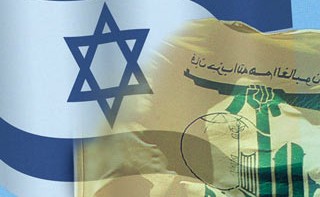
According to reports coming from Israel, the IDF would continue
to use preemptive operations, such as the “unconfirmed” attacks on
Syrian armories and on truck convoys hauling advanced weapons across the
Lebanese border, to be handed to Hezbollah. IDFF is reportedly “cautiously optimistic” in its assessment of the
security challenges of 2017, expecting to get to the other side “without
having to wage major combat operations,” writes DefenseNews‘ Barbara
Opall-Rome, after an interview with a senior defense official in Tel
Aviv. However, she quotes the same official, “Today, the most probable
war is one in which both sides didn’t want it, but due to the dynamic of
escalation, we might find ourselves in it.”
The senior official told Opall-Rome that Israel is cautious and mindful of “unintended consequences” resulting from its actions regarding Hezbollah up north, Hamas in Gaza, the Palestinian Authority, and even faraway countries such as Iran.
In his opinion, the hierarchy of threats against Israel in 2017 will
be: 1. The PA; 2. Hamas; and 3. Iran-backed Hezbollah, which, despite
the fact that it is the strongest of the three “the probability [for
confrontation] is low, as long as we don’t get into a dynamic of
escalation.”
Israel is reportedly anxious about the possibility that Iran and
Hezbollah stay put in a ruined Syria after the Russians have reduced
their presence there. The senior official is not concerned
about Israel’s ability to deal with Bashar al-Assad, rather “our
concern is that Iran and Hezbollah will grow ever more confident in
Syria when the superpowers leave or reduce their presence… and that will
not be a good end to this story.”
Hezbollah worries this security official because “they haven’t
stopped for one day their buildup against Israel… and we don’t want to
wait for the first day of the war.”
“When you let so many weapons systems get into Lebanon, you push a
higher probability of a war,” the official said, noting that “[Hezbollah
leader Hassan] Nasrallah speaks almost every week about the day they
will conquer Israel. And if he speaks like that every week, why wait?
Why give him a feeling of being strong enough?”
He also suggested that
Hezbollah forces in Syria could turn on the Russians, using their
advanced arms, including their anti-aircraft weapons. “If I had
opportunity to give advice to President Putin,” he told Opall-Rome, “I’d
say you should keep an eye on Hezbollah if you want a stable Middle
East and if you want to protect your gains in Syria.”



